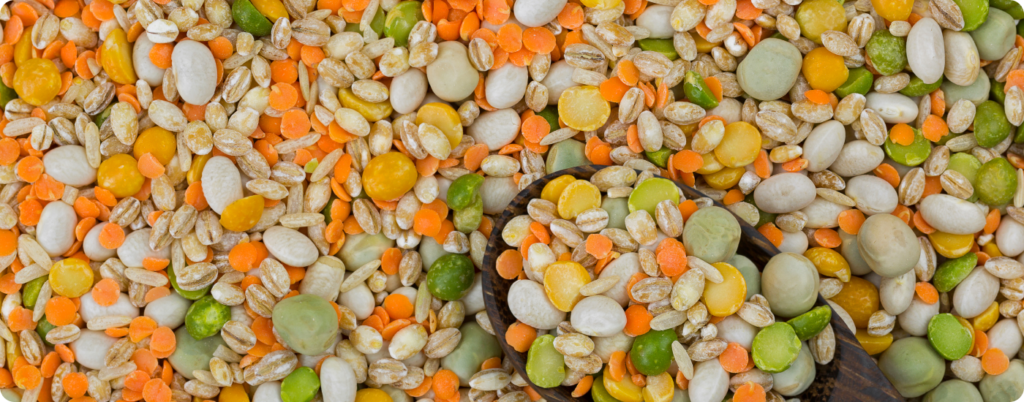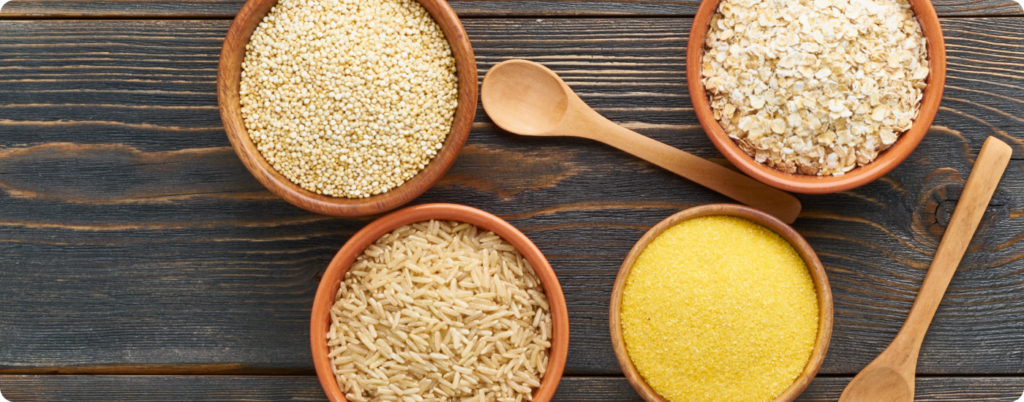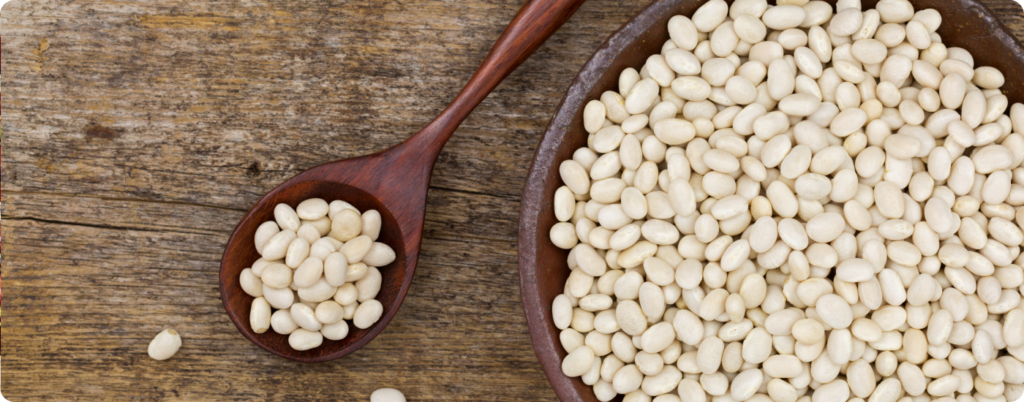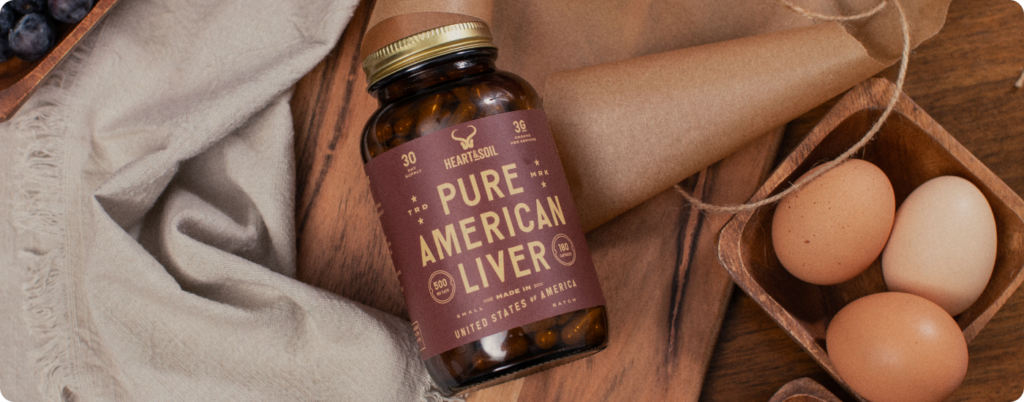PLEASE NOTE: The information in this blog is for educational purposes only. It is not a substitute for professional medical advice. Consult your healthcare provider if you’re seeking medical advice, diagnoses, or treatment.
What if the “health foods” you’ve been told to eat are quietly working against your gut, your energy, and your immune system?
You’ve likely heard the buzz around lectins, a compound found mostly in legumes and grains. Some claim they wreak havoc on your gut and fuel inflammation, while others argue the health risks are overblown.
So what’s the truth—are lectins bad for you? Let’s uncover what you really need to know.
What You’ll Learn
- What lectins are
- 3 ways lectins affect your health
- Who should be cautious about lectins
- Foods highest in lectins
- A better alternative

What are Lectins?
Lectins are carbohydrate-binding proteins found primarily in plants, particularly legumes (like beans and lentils), grains (like wheat and corn), and some vegetables (like tomatoes and potatoes).
In the plant kingdom, lectins act as defense mechanisms against pests and predators in their environment. They help the plant survive, but that doesn’t mean they’re ideal for human consumption (1).
Lectins cannot be digested by humans and pass through the gastrointestinal tract, often negatively interacting with gut tissue. Many lectins are heat-sensitive, so cooking can reduce their toxicity, but not always entirely (2).
3 Ways Lectins May Harm Your Health
1. They Can Disrupt the Gut Lining
One of the most researched and troubling effects of lectins is their ability to bind to the intestinal linin
g. This binding can degrade the protective mucus layer, damage microvilli (the projections that absorb nutrients), and increase gut permeability (aka “leaky gut”) (3).
When the gut barrier becomes compromised, it allows undigested food particles, bacteria, and toxins to pass into the bloodstream, which can trigger immune responses and systemic inflammation. This can bring many symptoms, such as bloating, food intolerance, and fatigue (4). It can also trigger histamine release, increasing stomach acid, which can contribute to ulcers (5).
2. They Act as Antinutrients
You may have heard some experts calling lectins bad for you due to their ability to disrupt nutrient absorption. Lectins fall under the broad category of antinutrients, which are plant compounds that interfere with the absorption of key minerals and nutrients.
Lectins can bind to iron, calcium, zinc, and others, making them more challenging for your body to absorb and use. In a strict plant-based diet, these nutrient deficiencies can lead to fatigue, low immunity, poor skin health, or hormonal imbalances (6).
In contrast, animal-based foods offer highly bioavailable nutrients without the presence of lectins or other antinutrients. Liver, beef, oysters, eggs, and dairy are rich sources of easily absorbed iron, vitamin A, vitamin K, zinc, B vitamins, and more to support cellular energy, gut health, and overall vitality.
3. They Can Trigger or Worsen Autoimmunity
Perhaps the most concerning research is the link between lectins and autoimmune diseases. Lectins stimulate antigens on cells that do not usually display them, making those cells appear foreign to the immune system, leading to self-directed inflammation (7).
For instance, in type 1 diabetes, pancreatic cells might begin expressing unusual markers after lectin exposure, prompting an immune response that destroys insulin-producing beta cells (8). Similarly, in rheumatoid arthritis, lectins from wheat can bind to exposed sugars, potentially triggering chronic inflammation and immune attacks (9).

Should You Be Cautious of Lectins?
The answer to the question “Are lectins bad for you?” depends largely on your current health status and individual sensitivity. While many people might tolerate small amounts of lectins, you may benefit significantly from reducing or eliminating them, especially if you are dealing with (10):
- Gut disorders
- Rheumatoid arthritis
- Allergies
- Diabetes
- Chronic fatigue or brain fog
- Infertility or hormonal imbalances
That said, not everyone needs to completely avoid lectins. Individuals with healthy immune systems and no signs of gut dysregulation may tolerate moderate amounts of lectins, especially when prepared properly.
Even people without obvious symptoms often find that replacing lectin-rich foods with nutrient-dense animal-based alternatives improves energy, digestion, and mental clarity. It’s always worth experimenting to discover what works best for you.
Foods High in Lectins: Beware of These
Over 100 vegetables and some fruits contain lectins (11). Here are some of the top sources:
- Kidney bean (especially raw or undercooked)
- Taro
- Peanut
- Soybean
- Jackfruit
- Elderberry
- Garlic
- Pea
- Lentil
- Broad bean
- Amaranth
Soaking, boiling, pressure cooking, fermenting, and sprouting can all reduce lectin content. However, proper preparation doesn’t always eliminate lectins entirely. For people with sensitive guts or autoimmunity, even trace amounts may cause a flare (12).

A Better Diet for a Healthy Gut
Many foods high in lectins are often labeled as “healthy,” but from a pro-metabolic, ancestral perspective, especially when healing is the goal, they can do more harm than good (13).
If your aim is not just to avoid disease but to thrive, removing lectins and shifting to an animal-based diet can be one of the most powerful changes you can make.
Animal-based foods are low in antinutrients like lectins, phytates, and oxalates. Instead, they’re naturally packed with bioavailable nutrients that can HEAL the gut lining, promote energy production, and balance hormones.
Here’s what to prioritize:
- Grass-fed beef: a source of complete protein, iron, B12, and more
- Organ meats: especially liver, which we call “nature’s multivitamin.” Check out Pure American Liver.
Raw or low-processed dairy: rich in calcium and gut-friendly fats
Butter, ghee, tallow: nourishing saturated fats that support metabolic health
Pasture-raised eggs: packed with choline, lutein, and vital fat-soluble vitamins - Fruit, honey, maple syrup: easily digestible carbs to fuel your cells
- Bone broth & gelatin: rich in glycine and proline to heal and seal the gut
- Shellfish like oysters: a mineral powerhouse, especially for zinc and copper
To learn more about this nutrient-dense diet, check out The Ultimate Guide to the Animal-Based Diet.

The Bottom Line: Are Lectins Bad For You?
Not everyone reacts the same to lectins, but for many, especially those with digestive or immune issues, they can contribute to inflammation, nutrient malabsorption, and compromised gut integrity.
Removing foods high in lectins can offer significant benefits. It’s one of the major plant compounds avoided in an animal-based diet that emphasizes bioavailable nutrients to support radical health.
If you’re unsure whether lectins impact you, try eliminating them for 30 days and observe any changes in digestion, skin, mood, or energy. Your body will speak for itself.
Subscribe to future articles like this: